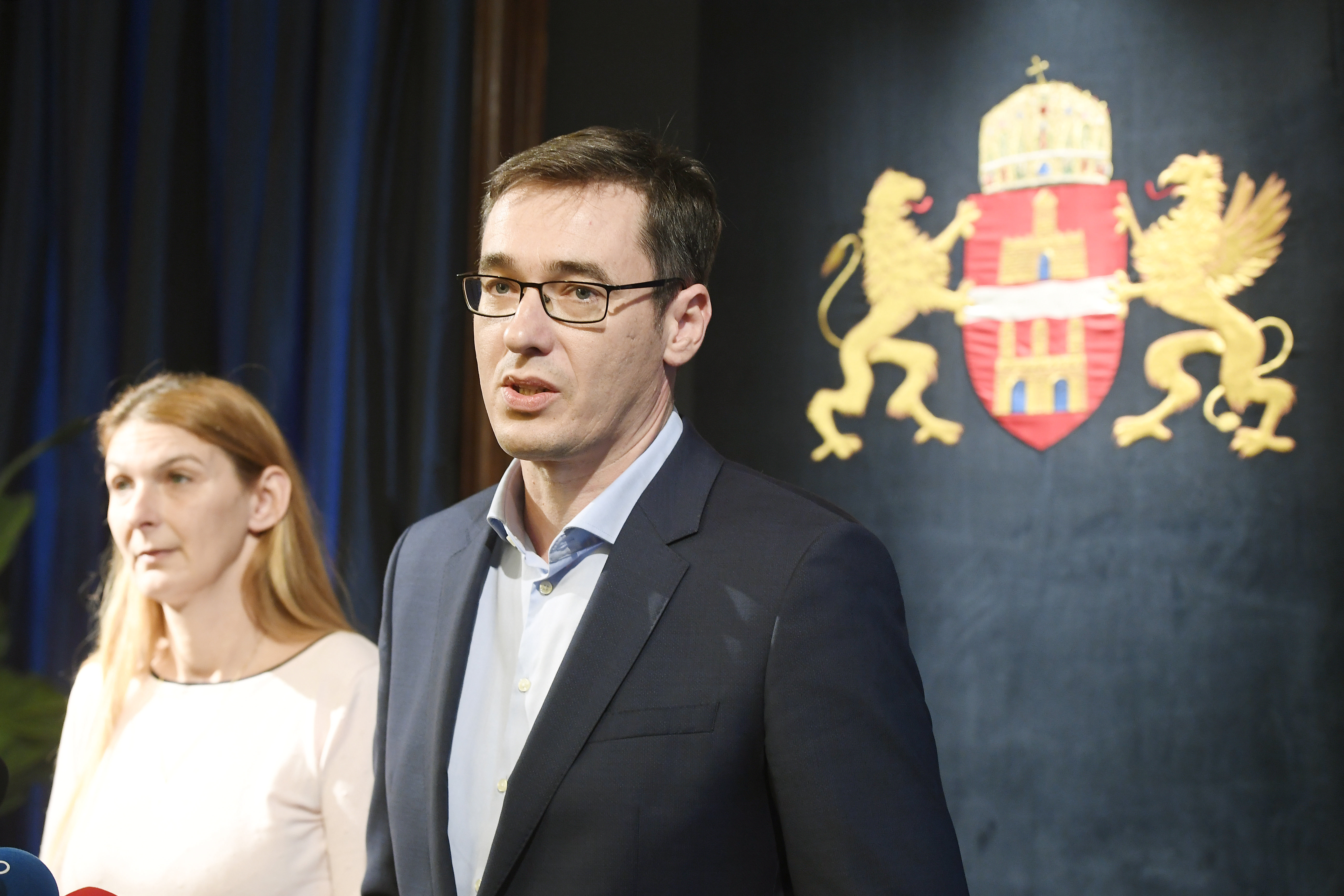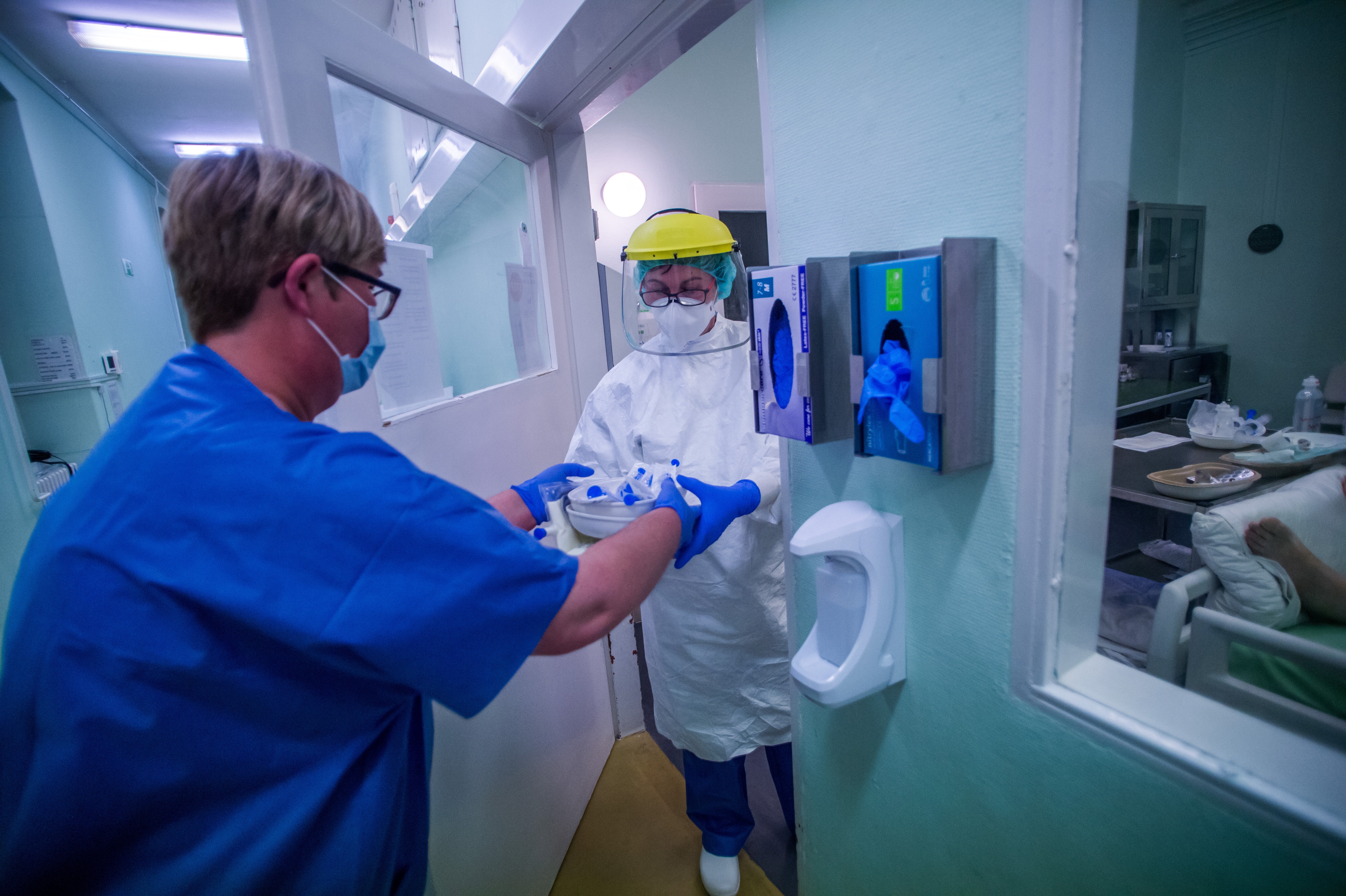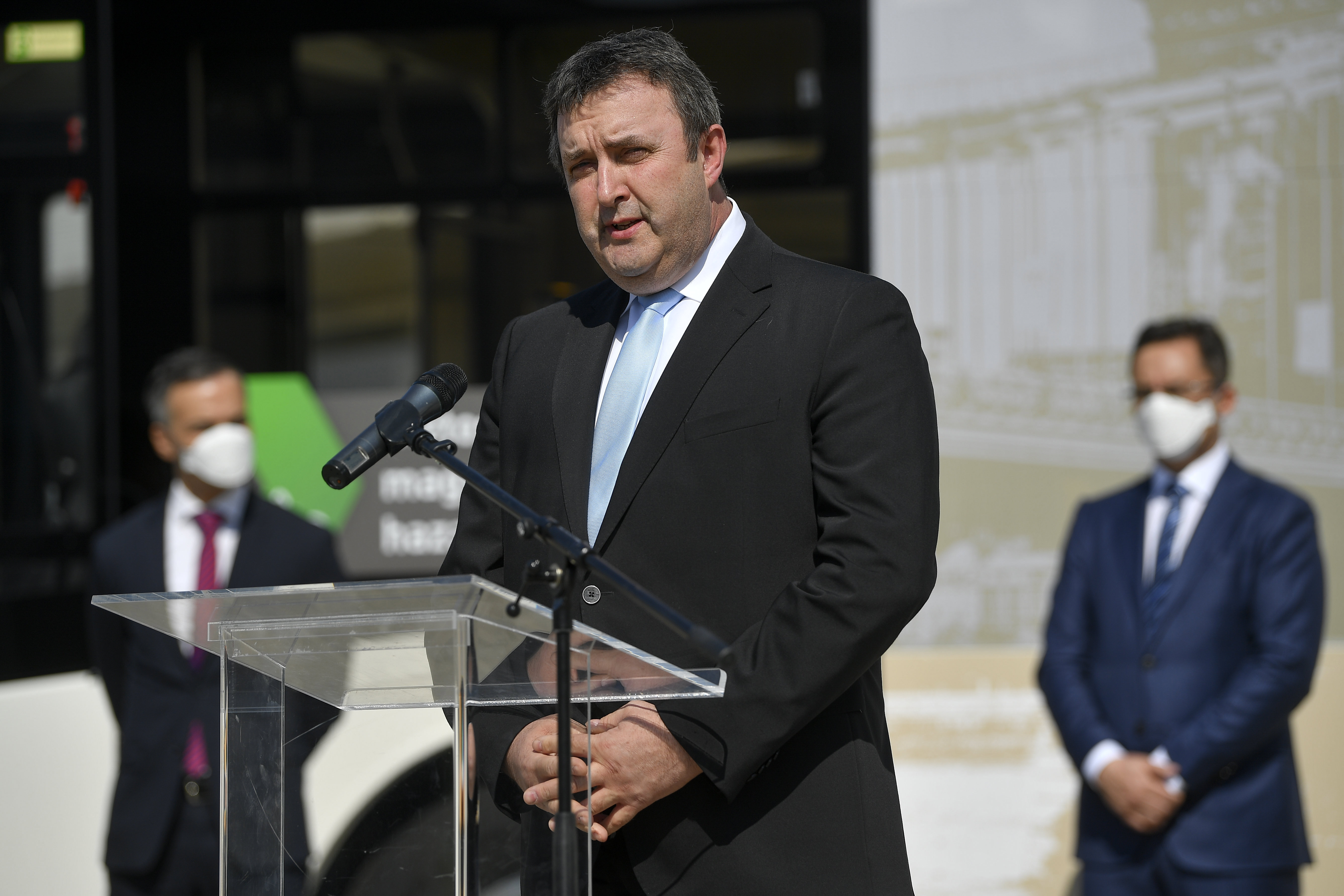Budapest spars with central government over transparency, protective equipment
- Stay updated on the latest news from Hungary by signing up for the free InsightHungary newsletter:
As the Hungarian government has implemented measures to contain the coronavirus pandemic, a parallel effort has taken shape in Budapest as city leadership accuses the central government of neglect.
Gergely Karácsony, the mayor of the capital, for weeks has complained of a lack of communication between Budapest and the government organizations coordinating the pandemic response, especially the Emergency Task Force. At a session of the parliamentary public welfare committee on Tuesday, Karácsony displayed a single piece of paper which he said contained the entirety of the city's correspondence with the Task Force.
Karácsony said that Budapest had created its own task force which hoped to coordinate with its national counterpart and with national chief medical officer Cecilia Müller, but had received no response or guidance from either. At the committee meeting, the mayor presented a 58-page document detailing epidemiological measures Budapest has taken to combat the pandemic, which he said were informed by international examples because the Task Force had supplied no information.
"It's often easier to speak with the mayors of Berlin or Vienna than with the national chief medical officer," Karácsony said.
At the committee meeting, some members criticized Budapest leadership, saying the city had done little more than complain to mitigate the crisis, Karácsony said. But the mayor told the committee that the provision of protective equipment and testing is the responsibility of the state, and that since the government had failed to assist Budapest with such equipment, the city spent more than Ft 1 billion (€2.8 million) to supply all its social institutions with masks and protective equipment and had begun its own testing. The city has also extended support to homeless shelters and the city's district governments, tasks he argued are also the responsibility of the state.
Every measure the government takes to mitigate the crisis comes days or weeks after city leadership and other experts have made such policy recommendations, Karácsony told ATV following the committee meeting. The people of Budapest are paving the way and the government is lagging behind us, he said.
On Wednesday, Prime Minister Viktor Orbán announced that pandemic protection had entered "a new phase", and that gradual easing of restrictions could commence on a strict schedule. But since cases of the coronavirus are highest in Budapest and surrounding areas, curfew restrictions will remain in place in the capital as new, looser protective measures are introduced in the countryside, Orbán said. (While the government has not released the number of tests or active cases by county, making it difficult to compare the real density of cases, available data suggests that Budapest has not become an outbreak point: like elsewhere in the country, many cases are confined to small outbreaks in hospitals and nursing homes, and are not connected to broader community spread. In Budapest, 1 in every 1,300 residents has tested positive for the coronavirus, while in the more rural Fejér county - which will have restrictions relaxed - 1 in 1,500 have tested positive.)
Reacting to the announcement, Karácsony said he hopes the government carefully considered the decision "based on information only it has access to," and said he agrees that restrictions should not be loosened in Budapest, adding that he is pleased the government has taken his advice by requiring the use of masks in businesses and on public transportation countrywide. At a press conference on Thursday, however, the mayor said he would prefer not to learn of the government's plans for Budapest only by reading them in the government's official gazette.
Doctor says healthcare workers are struggling with insufficient equipment and low wages
In an anonymous interview with 444, a pulmonologist working in the coronavirus ward of a hospital in western Hungary revealed that medical staff have not been provided sufficient protective equipment and that doctors are facing significant financial strains as they work on the frontline of the pandemic.
Medical staff working with non-intensive coronavirus patients are receiving only FFP2 masks, and have not been provided with any of the safer FFP3 masks. "I have to use the mask for a week, but the official usage time for these masks is eight hours," the doctor said. "It's written on the mask that if you remove it, you shouldn't use it again. I acquired protective gowns and safety goggles for myself, and my ward ordered FFP masks on AliExpress so the nurses would have them."
The doctor said the government has not provided adequate safety equipment, and that medical staff are disinfecting protective gowns for reuse despite their belief that it is dangerous to do so because they are still working with earlier patients not infected with the coronavirus. "We've got to be in contact with them, which means that we need extra protection so we don't infect them," the doctor told 444.
Testing for the virus began on hospital staff only last week, so the biggest problem now for medical staff is their salaries, according to the pulmonologist. Healthcare workers were ordered not to work second jobs when the state of emergency was declared, which meant that doctors could no longer provide private care or serve as general practitioners at other hospitals on the side. This has caused many doctors to lose as much as half of their monthly income.
Prime Minister Viktor Orbán announced on April 3 that all healthcare workers would receive additional benefits worth 500,000 Ft (€1,412) this year, but the doctor said no one in his hospital has seen any sign of it.
"We don't even know if that is net or gross. There is information that we will receive it at the end of the year, and we've heard that it is actually a benefit in the form of a meal ticket or something like that. They announced to us that those caring for Covid patients will receive a 1,000 Ft (€2.80) per hour wage supplement, but we don't know if that is net or gross, and I haven't seen any sign of it yet. Payroll is delayed by two months. My base salary is 203,000 Ft (€573) net [per month], but I just received 183,000 Ft (€517) because I was sick at the beginning of March."
The doctor said that while the situation in the hospital was chaotic at the start, and that the mass vacating of hospital beds by government order had taken a toll on healthcare workers, the situation has improved now that hospital staff are more familiar with how to treat the virus.
Government quietly holds conference presenting previously unavailable epidemiological data
At a two-hour video conference held last Thursday by the Innovation and Technology Ministry, several virologists, epidemiologists and other experts presented data the government is using to inform its coronavirus-related measures. The conference was not announced ahead of time, and a video was released only on Saturday.
The experts revealed data which journalists had previously sought in vain at daily digital press briefings by the Emergency Task Force.
Innovation and Technology Minister László Palkovics said that the government's primary goal in imposing curfew restrictions and other measures has been to win time with which to bring the healthcare system to a level which can handle an inflow of coronavirus patients. Palkovics said that the government had prepared for a worst-case scenario of a transmission rate (R0) of 2.2, which would result in some 2.5 million infections in Hungary, of which 14,000 would require intensive care and ventilation.
According to modelling by mathematicians, if social contacts were reduced by 22-34 percent, then more than 7,000 ventilators could be necessary to handle the outbreak at its peak. But anonymized data from mobile providers indicates that Hungarians have largely followed social distancing guidelines, and that social contact had dropped by as much as 90% in Budapest in certain periods, which likely contributed to preventing a sharp increase in cases.
While restrictive measures appear to have successfully suppressed the pandemic and brought its spread under control, long-term suppression comes with three unfavorable consequences:
- herd immunity cannot be achieved, and only the development of a vaccine can eliminate the virus' risk to public health
- the economy will significantly contract due to the restrictive measures, causing job losses which can consequently result in health problems
- quarantine and social isolation can result in mental and other illnesses.
For weeks, the Emergency Task Force had refused to answer numerous questions from the press on whether the number of tests publicized by the government represents the number of tests administered or the number of people that had been tested. Beatrix Oroszi, an expert with the National Public Health Center, revealed at the conference that the 52,409 tests administered as of April 20 had been performed on 32,503 people.
Oroszi urged comprehensive testing, acknowledging that few tests have been completed in Hungary thus far. Since reaching 50-60 percent herd immunity appears impossible without letting the virus run freely, which would have disastrous consequences for the healthcare system, "the goal is to hold out until a vaccine is available," Oroszi said. In addition to the maintenance of social distancing guidelines, she recommended the mandatory wearing of masks in all public spaces.





